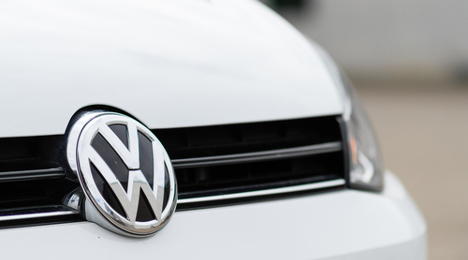Gauging VW shopper’s trade-in interests

By subscribing, you agree to receive communications from Auto Remarketing and our partners in accordance with our Privacy Policy. We may share your information with select partners and sponsors who may contact you about their products and services. You may unsubscribe at any time.
CARY, N.C. –
Are you prepared for potentially more Volkswagen diesel trade-ins on your lot?
While, of course, there is no guarantee that VW TDI owners will try to trade out of their rides, it's a scenario worth being ready for, at least.
With recent events in mind — including Volkswagen Group of America’s president and chief executive officer Michael Horn stating before a congressional subcommittee on Thursday that it would take at least a year, if not longer, to repair all of the vehicles affected by the recent diesel deceit — consumers may be looking into their options.
And that appears to be what’s happening. In the week after the VW announcement, the number of people looking up their VW TDI’s trade-in value on Kelley Blue Book's website increased by 79 percent compared to the prior week.
Are customers really looking to offload these vehicles before a solid announcement for a fix is made by VW? Or are they just curious how much their vehicle values are dropping? During a conference call with media on Oct. 1, Autotrader senior analyst Michelle Krebs said it’s still too soon to tell.
Jessica Caldwell, director of industry analysis at Edmunds.com, agrees. She also offered up some of her company’s September transaction data in the hopes of providing some clues as to which brands may be the most likely to benefit from a surge of VW owners returning to the market.
Subscribe to Auto Remarketing to stay informed and stay ahead.
By subscribing, you agree to receive communications from Auto Remarketing and our partners in accordance with our Privacy Policy. We may share your information with select partners and sponsors who may contact you about their products and services. You may unsubscribe at any time.
Here’s her summary of her findings for September, as shared by Edmunds:
- More than half of VW diesel trade-ins (51.2 percent) went toward another Volkswagen. The loyalty rate is higher for VW diesels than for overall VW trade-ins, in which only 39 percent went toward another VW.
- Those VW diesel trade-ins that defected to another brand were most likely to go toward popular Japanese makes like Toyota, Honda and Subaru.
- 40 percent of VW diesel trade-ins went toward another diesel of any make, while 57 percent of VW diesel trade-ins went toward a gasoline vehicle of any make. Only three percent of VW diesel trade-ins went toward a hybrid or EV.
As far as brands are concerned, Caldwell highlighted that Ford, Honda and Toyota are the top-shopped brands among VW shoppers. And if you’re looking at selling a VW? Mini, Fiat and Audi shoppers were the most interested in reverse cross-shopping for a VW.
It’s also noteworthy that those trading in their TDIs that are interested in staying in a diesel vehicle have shown increased interest in BMW and Chevrolet’s diesel offerings in the last two weeks, with Jetta TDI shoppers looking most often at the Chevrolet Cruze diesel variant. Those considering a VW Golf SportWagen showed the most interested in the VW Tiguan while cross-shopping.
Overall, Edmunds says that it has found that fewer customers shopping for VW’s gas variants have shown an interest in its diesel variants and shoppers of all competitive brands have engaged, with very few exceptions, in less reverse cross-shopping with VW overall in the last two weeks.
Larry Dixon, the senior manager of market intelligence at NADA Used Car Guide, provided his two cents on the situation.
“Unfortunately the relatively small number of VW diesels passing through the used market combined with uncertainty surrounding VW’s plan to bring affected vehicles into compliance make it difficult to pinpoint how disruptive the issue has been to the used VW market thus far,” Dixon said. “To-date, there is some indication that VW auction sales activity has been affected, however, any impact to VW prices remains inconclusive.”
To check out our previous report on how VW has been faring in the auction lanes, click here.


